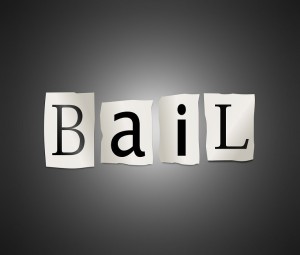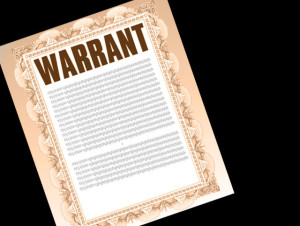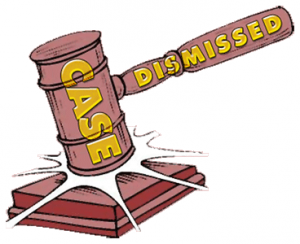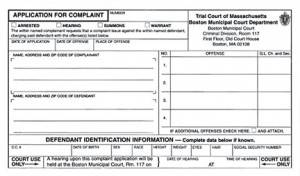One of the questions I am asked by people who expect to be charged with a crime is the amount of bail they will have to post once the case gets filed. The answer varies from case to case and from person to person. The answer to this question also depends on the judge hearing the bail argument, the district attorney prosecuting the case and the county where the case will be prosecuted. There are no formulas for setting bail in Massachusetts. I was recently retained on two very different rape cases and the amount of bail set pleasantly surprised both of these clients. Each asked me “is there a standard bail for rape cases in Massachusetts”. This post explores this issue. Continue Reading
Articles Posted in Uncategorized
What Should I Do If I Missed My Court Date in Massachusetts?
There are times when I am sitting in court waiting for a case to get called and wondering where my client is. Some of these folks are just late people. Others get lost on their way to court. Some think that court starts at 9:30 or 10:00. Then there are people who have personal matters such as child care conflicts. And others simply get the court date wrong or forget to show up. If my client lets me know that he or she will be late I can usually get a second call and avoid the entry of a default. Some judges will even give me a new date if my client had a legitimate problem that prevented attendance in court. However, absent a good excuse prosecutors will request and judges will enter a default. This can result in the issuance of a bench warrant or a default warrant. This prompts a question that I get several times each month, that being “what should I do if I missed my court date?”.
What is a Required Finding of Not Guilty and How Does it Work?
The duty of the office of the district attorney in Massachusetts is not only to prosecute cases but to screen criminal allegations to determine if in fact a crime was committed. Sometimes this screening process fails. Young prosecutors ignorant of the law might pursue charges that are not sustainable by the evidence. Sometimes prosecutions are initiated recklessly without consideration of the truth of the allegations. Other times prosecutions that are not supported by the evidence are brought about through vindictiveness. Fortunately there is a rule of law that might be applicable in these instances that will exonerate the defendant notwithstanding the prosecutor’s efforts. This rule permits a judge to enter a required finding of not guilty and dismiss the charges.
Do I Need A Lawyer For A Clerk Magistrate Hearing in Massachusetts?
Most misdemeanors and some felonies are initially addressed in a clerk magistrate hearing. These proceedings are initiated through applications for complaints made to the criminal clerk’s office either by a civilian ore a police officer. The clerk’s office then issues a summons to the defendant indicating the charges being applied for and a date and time for a hearing. At this hearing the complaining party states his or her case against the accused. The person presenting the evidence can be a civilian or a police officer. The defendant can, if he wishes present a defense. The clerk magistrate hears the evidence and decides whether or not probable cause exists to believe that a crime was committed and the accused is the person who committed the crime. If probable cause is found a complaint can issue. Most people who receive a criminal complaint application know this. So I am always baffled when people call and ask me if they need a lawyer for a clerk magistrate hearing.
Criminal Trials in Massachusetts and Who Might Be on Your Jury
Criminal defense lawyers love trying cases to a jury. The process evokes the inherent competitiveness that got us into this business in the first place. We can’t wait to give an opening statement, cross-examine witnesses, make objections and put our own evidence before the jury. Naturally, closing arguments are exciting particularly when the trial evidence has set the stage for a compelling argument to the jury advocating the acquittal of the accused. In the excitement of getting started however many lawyers forget to discuss with their clients the possible composition of the jury. This post discusses who might be on your jury in Massachusetts. Continue Reading
Continue Reading
Can I Terminate My Probation Early in Massachusetts?
It is truly amazing how many people charged with crimes in Massachusetts feel a tremendous sense of relief when they resolve their case by being placed on probation. They have avoided the uncertainty of their sentence should they lost at trial. They walk away from the courthouse wiping their brow.The weight of the world is no longer on their shoulders. They are, in their minds free. For some people this feeling lasts forever. For others it lasts for a few days, sometimes even weeks. Then reality sets in. “Wait a minute” they say. “You mean I have to report to a probation officer once a week? ” “Do I really have to pay the probation department fifty or possibly sixty-five bucks a months?” Sometimes they call me up and ask if I can fix this. “Can I terminate my probation early?” This post examines some possibilities in this situation. Continue Reading
Massachusetts Strictly Enforces Drunk Driving and Melanie’s Law
The Lawrence Eagle Tribune recently reported that an American Revolution memorial honoring the Methuen men who fought in the Revolutionary War was struck and damaged by a drunk driver. A Haverhill man was allegedly drunk at the time of the accident and exhibited erratic driving behavior both before and after striking the memorial with his vehicle, witnesses reported. The Tribune notes that Haverhill police arrested the driver of the car and charged him with driving under the influence of alcohol. The Methuen police will charge him with speeding and leaving the scene of an accident after causing damage to property. Continue Reading
Advice to Massachusetts College Students Charged With a Crime: Hire a Lawyer
Several times each month I get a call from a local college student asking me questions about a crime that he or she has just been charged with. Most of the crimes are minor misdemeanors; shoplifting, trespassing or being a minor in possession of alcohol. Some of the charges are more serious such as assault and battery, drug possession or drug distribution. Very few of these kids have criminal records and almost all of them will continue not to have a criminal record if they are properly represented. The problem is that most of them do not want an effective lawyer. They want to represent themselves. The reason is two-fold. First, they do not have enough money to hire a lawyer. Second, they are afraid of asking their parents for the money because they don’t want them finding out what they did. As explained in this article this is a big mistake. Continue Reading
Just How Reliable Are Photo Arrays? Challenging The Identification Procedure
There is perhaps nothing more unfair and suggestive in criminal law than photo arrays. This is a procedure where the police place before a witness several photos and ask if the person who committed the alleged crime is depicted in one of the pictures. Included in the array is a photograph of the suspect and several other people known as fillers. There should be at least six photos and the appearance of the people in the photos should be similar in every regard. The photos should be positioned randomly within the array. The photos should shown to the witness one at a time. Once the witness has viewed a photo that picture should be removed so that only one picture is before the witness at any one time. Nothing suggestive should be said or done during the procedure. The witness should not be told that the suspect is included among the photos. Yet, this is not the way it works. This post looks into some of the problems with the reliability of photo arrays. Continue Reading
Peabody Massachusetts Heroin Trafficking: Lawyer Analyzes Probable Cause For Issuance of Search Warrant
Over the past several years a trend has developed enabling law enforcement to obtain search warrants for homes based on anonymous tips. Tipsters using apps that connect to local police departments provide information that the cops otherwise would not have had. The application is downloaded to smartphones and has several features geared towards improving public safety. Among these features are the ability to submit tips, ask questions, comment on police conduct or misconduct and access a local police department website. In a recent case in Peabody, Massachusetts a tipster used MyPD to complain to the police about suspected drug activity. In this case the investigation resulted in a search warrant execution and felony drug arrests of a juvenile and an adult. This post examines whether the police officer’s observations establish proper probable cause for the issuance of the search warrant.
 Massachusetts Criminal Defense Attorney Blog
Massachusetts Criminal Defense Attorney Blog





